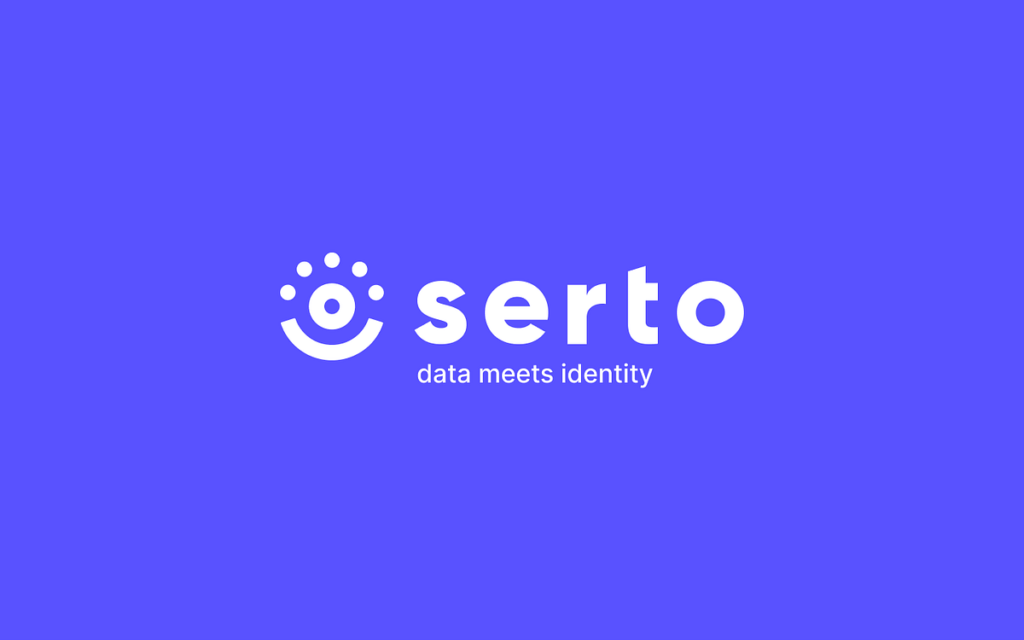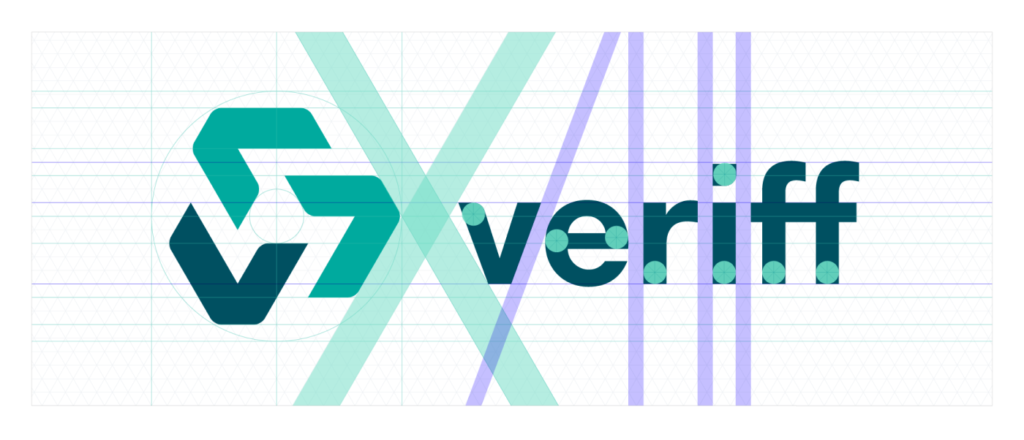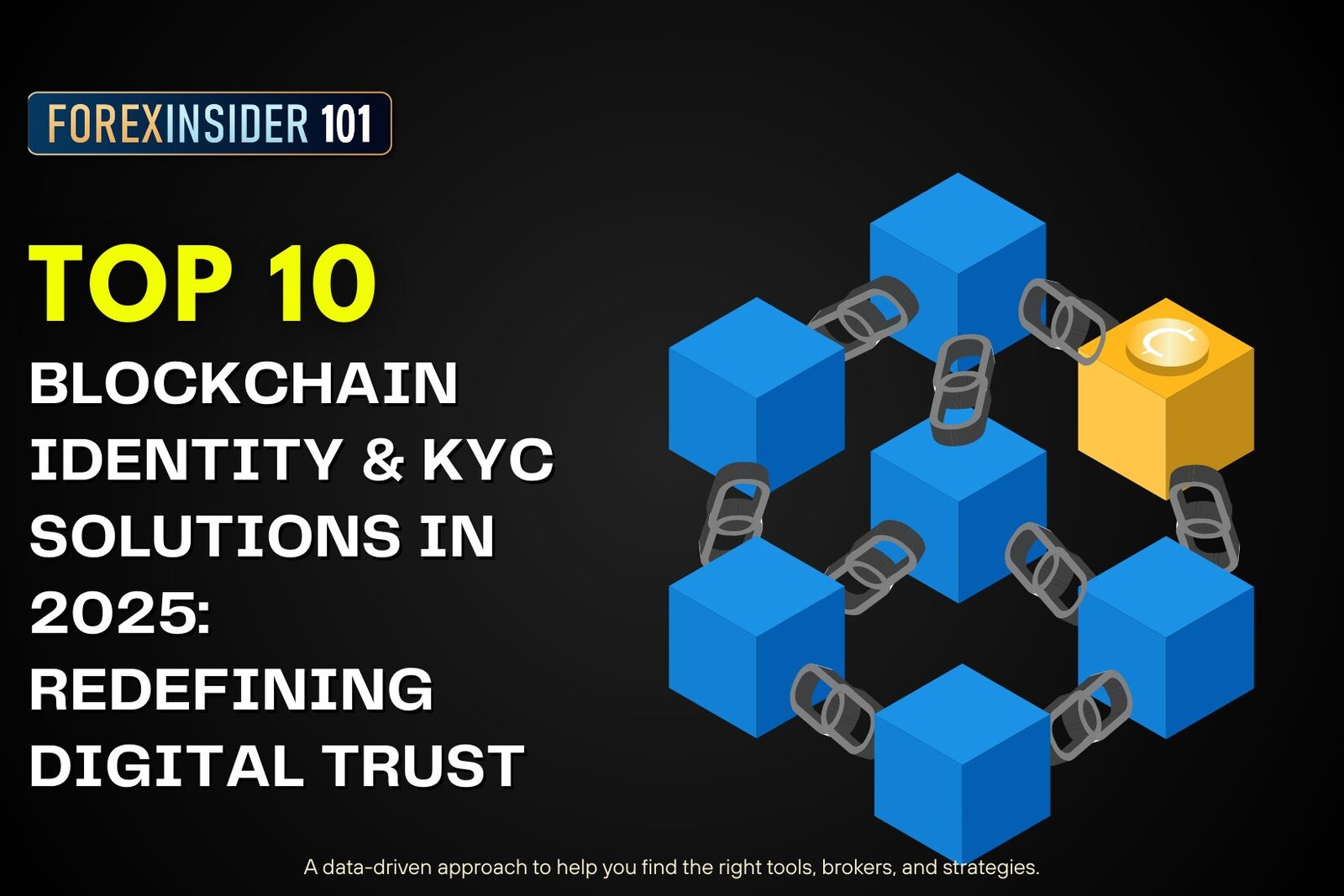Top 10 Blockchain Identity : As digital transformation accelerates, the question of who we are online has become more important than ever. Every financial transaction, crypto exchange signup, or e-commerce checkout relies on digital identity and Know Your Customer (KYC) processes. Yet, traditional KYC remains plagued by inefficiencies: lengthy onboarding procedures frustrate users, repeated data collection increases friction, and centralized storage creates new risks of fraud and massive data breaches. These problems are no longer minor inconveniences—they are existential threats in an era where fraudsters are using sophisticated methods to exploit identity systems.
The emergence of blockchain identity solutions in 2025 represents a pivotal shift. By embedding transparency, decentralization, and immutability into identity systems, blockchain enables trust without over-reliance on intermediaries. It creates verifiable credentials that can be shared securely across platforms, drastically reducing duplication and compliance costs. In this article, we explore the Top 10 Blockchain Identity & KYC Solutions in 2025, providers that have proven their resilience and adaptability in a regulatory environment that is stricter than ever while addressing the needs of both enterprises and end-users.
Why Blockchain Identity & KYC Solutions Matter in 2025
The global regulatory climate has reached a critical stage. Financial institutions face increasing scrutiny from bodies enforcing anti-money laundering (AML), counter-terrorism financing (CFT), and data protection rules. Updates to GDPR and FATF guidelines have made compliance not just an obligation but a survival requirement for any company handling sensitive financial data. At the same time, industries like decentralized finance (DeFi) and cross-border fintech services are booming, with millions of users demanding faster, simpler onboarding that still protects their privacy.
Traditional KYC providers struggle to balance convenience with compliance. That’s where blockchain-powered systems stand out. They eliminate repetitive identity checks, cut down onboarding times, and allow a single, verified identity to function across multiple platforms. Users gain control over what information they share, while institutions reduce both compliance costs and regulatory risks. In 2025, the integration of blockchain identity solutions isn’t just optional—it has become one of the defining tools for financial institutions, crypto exchanges, and digital service providers looking to establish trust at scale.
Civic: User Privacy and Decentralized Identity
Civic has long championed the concept of a digital identity controlled by the individual rather than corporations. In 2025, its relevance has only grown as privacy concerns rise globally. Civic enables users to store their credentials on the blockchain and disclose only the minimal information required for verification. For instance, if a platform only needs proof of age, Civic can confirm that a user is above 18 without exposing passport numbers or personal addresses.
This selective disclosure model offers a powerful response to data minimization principles outlined in GDPR. Civic’s approach makes it a natural fit for Web3 applications, crypto exchanges, and decentralized finance platforms, where maintaining both privacy and regulatory compliance is paramount. By reducing unnecessary data exposure, Civic also lowers the risks of identity theft, making it one of the leading decentralized identity providers in the blockchain ecosystem.
Serto: Building Interoperable Self-Sovereign Identities

Source: Medium
Serto, formerly part of ConsenSys Mesh, has carved out a strong position in self-sovereign identity (SSI) solutions. Its mission is to make digital identities interoperable across different blockchain ecosystems, ensuring that users and businesses can carry verified credentials wherever they go. Unlike siloed identity systems, Serto relies on open standards and protocols that enable seamless cross-platform verification.
This approach has clear advantages for enterprises experimenting with Web3 technologies. As businesses build decentralized applications, they face the challenge of onboarding users who expect frictionless experiences. Serto’s infrastructure helps companies reduce duplication, cut down compliance delays, and provide identities that remain valid across ecosystems. By emphasizing interoperability, Serto isn’t just offering identity—it’s shaping the standards for how identity functions in the decentralized internet.
Sovrin Foundation: A Public Utility for Identity

Source: Sovrin
The Sovrin Foundation positions itself as more than just a KYC provider. It functions as a global, public identity utility built on open-source principles. At its core, Sovrin enables organizations to issue verifiable credentials that can be universally recognized and trusted. Its governance framework, which emphasizes decentralization and inclusivity, ensures that no single corporation controls the infrastructure—making it especially appealing to governments, NGOs, and institutions with public accountability mandates.
In practice, Sovrin is being explored for use in e-government services, humanitarian aid distribution, and education systems, where the ability to issue and verify credentials securely has enormous implications. Unlike purely commercial providers, Sovrin embodies a vision of identity as a shared, trusted layer of the digital economy, rather than a product locked into proprietary ecosystems.
Sanction Scanner: Compliance in Real Time

Source: Sanction Scanner
As financial regulators intensify their oversight, businesses need more than just verification—they need real-time compliance tools. Sanction Scanner addresses this by offering comprehensive AML and KYC screening, integrated with global watchlists, sanction databases, and politically exposed persons (PEP) monitoring. Its system continuously updates, ensuring that businesses stay compliant without introducing delays.
This real-time capability is particularly important for banks, payment providers, and crypto exchanges operating in multiple jurisdictions. By integrating blockchain verification with ongoing compliance monitoring, Sanction Scanner bridges a critical gap: ensuring that verification is not just accurate at the point of onboarding but remains valid as regulatory risks evolve.
Trulioo: Scaling Identity Across Borders
Trulioo has emerged as one of the most trusted providers for businesses operating globally. Its strength lies in scale—it connects to more than 400 data sources across 195 countries, making it possible for fintech companies, banks, and digital marketplaces to onboard users worldwide with consistent compliance. In 2025, as cross-border payments and global platforms expand, Trulioo’s ability to deliver localized compliance at scale has become invaluable.
The platform combines blockchain infrastructure with biometric verification and advanced analytics. This combination ensures that users are verified quickly, regardless of their country of origin, while businesses remain compliant with local regulatory requirements. Trulioo effectively acts as a bridge between multinational enterprises and localized compliance standards, which is why it remains one of the leading blockchain identity providers.
Jumio: AI-Powered Fraud Prevention

Source: PRH
Jumio has built its reputation on blending artificial intelligence with identity verification. In 2025, it remains one of the strongest providers for industries where both speed and fraud prevention are non-negotiable. Its system combines biometric facial recognition, document verification, and machine learning algorithms to identify anomalies in real time.
By integrating these features with blockchain-based identity storage, Jumio provides both efficiency and security. Financial institutions, healthcare providers, and online gaming platforms use Jumio to protect against fraudulent users without creating onboarding hurdles. The platform illustrates how AI and blockchain together can redefine identity verification, making it smarter and more resilient against evolving fraud tactics.
Ondato: Compliance for Small and Mid-Sized Businesses
Not every organization has the budget of a multinational bank, and Ondato fills that gap by offering accessible yet comprehensive compliance solutions. Its tools include video-based identity verification, e-signatures, and automated risk assessments—all designed to simplify KYC for businesses that lack dedicated compliance teams.
In 2025, Ondato is particularly appealing to SMEs and regional financial institutions. By automating complex compliance workflows and packaging them into user-friendly solutions, Ondato democratizes access to enterprise-grade KYC. This ensures that smaller players in the digital economy can still meet global compliance standards without being overwhelmed by costs or complexity.
Veriff: High-Volume Verification at Scale

Source: daviferent
With its roots in Estonia’s tech-driven ecosystem, Veriff has become a global player in AI-powered verification. The platform excels at handling high volumes of verifications quickly, detecting fraud patterns, and adapting to the regulatory frameworks of different countries. For banks, crypto exchanges, and global digital platforms, this scalability is a significant advantage.
Veriff’s approach goes beyond just verifying documents—it uses advanced fraud detection algorithms that can spot inconsistencies invisible to the human eye. By combining speed with reliability, Veriff ensures that companies scaling across multiple markets can maintain trust without slowing down user growth.
Shufti Pro: Global, Multilingual Identity Verification

Source: Probinex
Shufti Pro emphasizes inclusivity in identity verification. Operating in over 230 countries and offering multilingual support, it enables businesses to serve truly global customer bases. Its biometric authentication systems add a layer of security that ensures both compliance and convenience.
This breadth of coverage makes Shufti Pro particularly effective for e-commerce platforms, multinational corporations, and digital banks that deal with diverse customers across different regulatory regimes. In a world where businesses increasingly expand globally from day one, Shufti Pro’s commitment to accessibility sets it apart from more regionally focused providers.
Sumsub: Top 10 Blockchain Identity – Orchestrating KYC & AML Workflows

Sumsub takes a unique approach by positioning itself as an orchestration hub for KYC and AML processes. Instead of offering rigid verification systems, it allows businesses to design workflows that adapt to the specific regulations of each region they operate in. This flexibility is critical in industries like fintech, crypto, and iGaming, where compliance requirements vary widely.
By integrating fraud detection, document verification, and regulatory adaptability, Sumsub provides a single control center for compliance operations. For fast-moving companies that need both precision and agility, Sumsub has become a platform of choice in 2025.
Comparative Table – Top 10 Blockchain Identity
| Provider | Core Focus | Key Strengths | Main Users |
|---|---|---|---|
| Civic | Decentralized Identity | User privacy, selective disclosure | Web3, DeFi, Crypto Exchanges |
| Serto | SSI & Interoperability | Cross-platform protocols | Enterprises, Web3 Ecosystems |
| Sovrin | Open-Source Utility | Governance-driven, verifiable creds | Governments, NGOs, Enterprises |
| Sanction Scanner | AML/KYC Compliance | Real-time sanction & PEP checks | Banks, Payment Providers |
| Trulioo | Global Verification | 400+ data sources worldwide | Fintechs, Multinationals |
| Jumio | AI-Powered Verification | Fraud detection, biometric checks | Banking, Healthcare, Gaming |
| Ondato | SME-Focused Compliance | Video ID, automation, e-signatures | SMEs, Regional Institutions |
| Veriff | High-Volume Verification | Fraud prevention, scalability | Banks, Crypto Exchanges |
| Shufti Pro | Global Coverage | Multilingual, biometric authentication | E-commerce, MNCs, Digital Banks |
| Sumsub | Orchestration Platform | Customizable workflows, adaptability | Fintechs, iGaming, Crypto |
Future Outlook: Top 10 Blockchain Identity -What Comes After 2025
Looking beyond 2025, several trends are clear. Self-sovereign identity (SSI) will become mainstream in Web3 environments, where user-owned data is not just desired but expected. Governments are beginning to integrate blockchain into national eID systems, bridging public services with private platforms. At the same time, AI and blockchain will continue to converge, making fraud detection smarter and more predictive.
The growth of central bank digital currencies (CBDCs) and DeFi platforms will demand greater interoperability between KYC providers. Biometric-first verification methods will dominate mobile-first regions, creating faster onboarding experiences. Taken together, these shifts signal a future where blockchain-based identity is no longer a niche innovation but a critical infrastructure layer for the global economy.
Conclusion – Top 10 Blockchain Identity
The Top 10 Blockchain Identity & KYC Solutions in 2025 highlight the different paths companies are taking to solve the same problem: establishing trust in a digital-first economy. Civic and Sovrin lean into decentralization, while Trulioo and Sanction Scanner focus on compliance and global reach. Jumio and Veriff bring AI into the mix, and Sumsub emphasizes adaptability. Together, they represent a spectrum of approaches, but with one shared goal—making digital identity secure, efficient, and trustworthy.
As regulatory scrutiny intensifies and online interactions grow in volume, blockchain identity is no longer optional—it is becoming the foundation of digital trust across industries worldwide.



